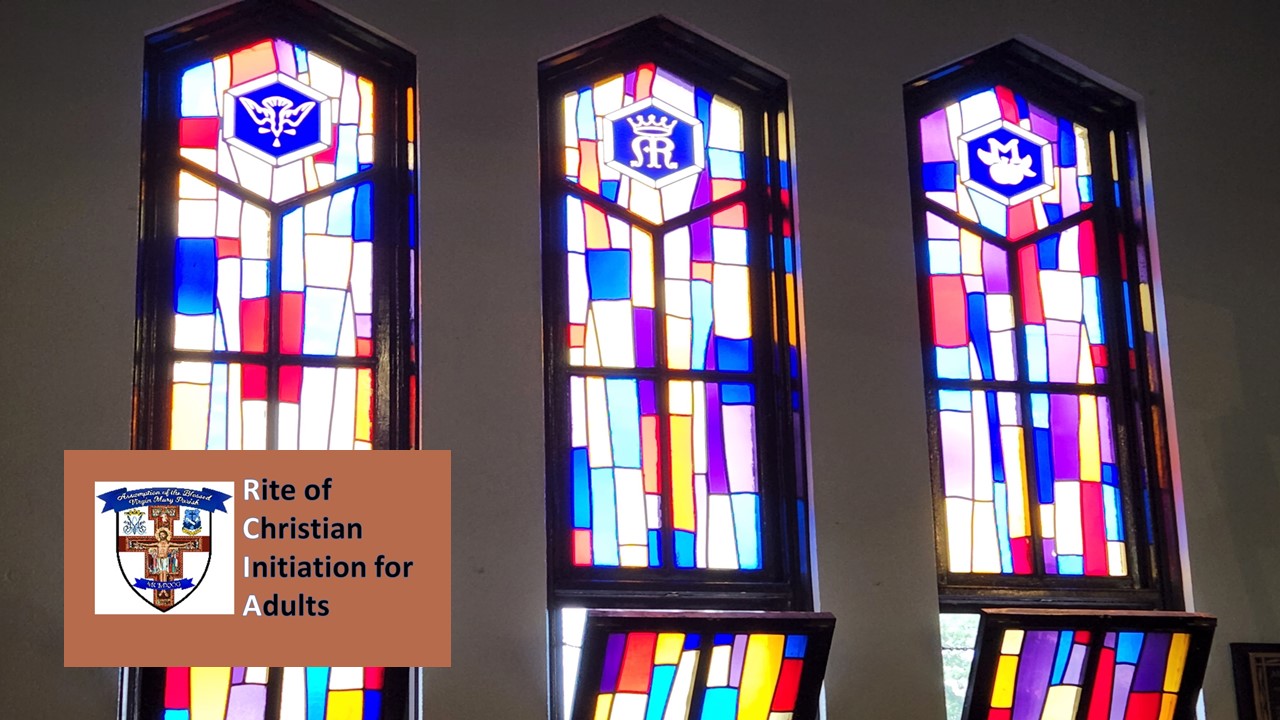
The formal process called the Rite of Christian Initiation of Adults (RCIA) can be likened to a journey that will take many months as one undertakes this “training in the Christian life”. It is a serious commitment in time that, for this parish, normally begins each year in mid-September culminating in the following April when the candidate (referred to as a “catechumen”) receives the sacraments of initiation (Baptism, Confirmation and Eucharist) during the Easter Vigil mass celebration.
For those interested, please access the form here >>> RCIA Application Form
Frequently Asked Questions (FAQs) –
What are the time commitments in this program?
It is a weekly session from mid-September normally held on a Tuesday evening for two hours either in-person or online, with some sessions scheduled during specified Sunday masses for the formal Rites in March and April. There is a two-week break for Christmas in December. After the sacraments are received in Easter, there are additional weekly sessions for the period called “Mystagogy” that lasts until the week before Pentecost Sunday in May.
Is there a fee to join the RCIA?
There are no fees involved, although your voluntary donation of any amount is welcome to help defray the cost of books you will need to use: Holy Bible, Catechism of the Catholic Church, etc.
I was baptized in another Christian denomination. Do I need to be baptized again?
No, as long as you were baptized in water in the name of the Father, the Son and the Holy Spirit it is valid. All baptized Christians are considered members of the body of Christ, however, you will still need to take the other sacraments of Confirmation and Eucharist to be considered a Catholic.
I am divorced. Can I still become a Catholic?
Yes, if you are not remarried. If you are remarried, or if your spouse is also remarried, then you need to go through the process of a religious Annulment of all previous marriages (yours and/or your spouse) through a Marriage Tribunal in the Archdiocese of Ottawa-Cornwall.
I was baptized a Catholic but have never practiced as a Catholic. Can I join the RCIA?
No, since you are already a Catholic. RCIA is for initiation and not for a re-commitment for those who wish to come back. It is recommended that you go to Confession with a priest. You may also wish to attend adult Faith Formation courses.
What is a typical RCIA session like?
A typical RCIA session includes time for prayers, talks, videos, discussions, and for reflections not only for the attainment of knowledge but also for spiritual growth and conversion. Each session explores a particular theme in a progressive manner, with topics building up from the previous sessions, under the guidance of experienced teachers, clergy, coordinators or facilitators.
Do I need an RCIA sponsor? Who can be sponsors and what is their role?
Yes, you need a sponsor although it is possible that your RCIA Facilitator or Coordinator can act as your sponsor if there is no one else. A sponsor is required to be a practicing Catholic who attends Sunday mass regularly, is over 16 years of age, is not bound by any canonical penalty (example: an irregular marriage), and is not one of your parents. A sponsor’s role is to attend RCIA sessions with you up to the Rite of Acceptance. He will share about your progress with the Facilitator.
Do I need a godparent? Who can be godparents and what is their role?
Yes, you need a godparent although again it is possible that your RCIA Facilitator or Coordinator can act as your godparent if there is no one else. Like that of a sponsor, a godparent is required to be a practicing Catholic who attends Sunday mass regularly, is over 16 years of age, is not bound by any canonical penalty, and is not one of your parent. A godparent’s role is to attend RCIA sessions with you from the first Sunday of Lent until your baptism. He will be your model in continuing and practicing your Christian life going forward, upholding you in times of doubts and hesitations. While there is no rule against it, we generally encourage you to find a sponsor other than your spouse or fiancé(e), in order to build additional bonds of friendship, spiritual counsel, and Christian communion.

